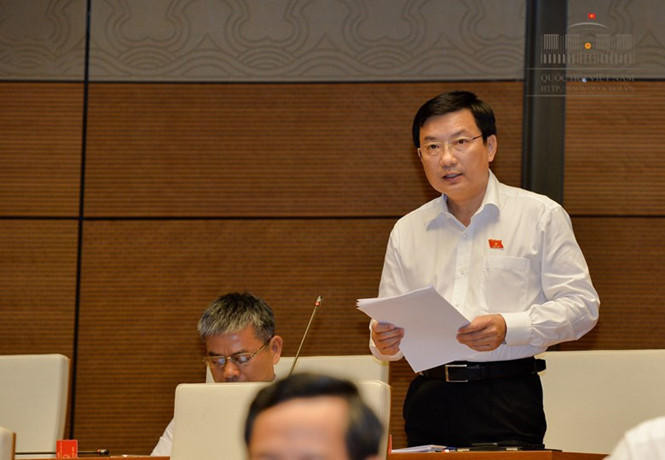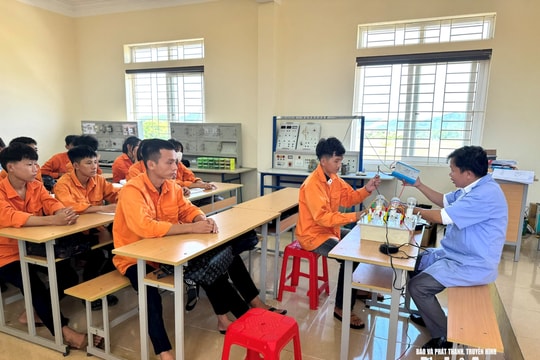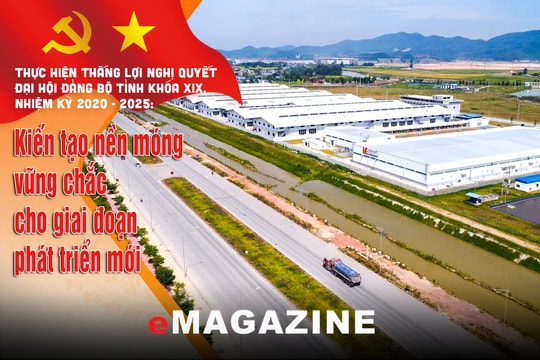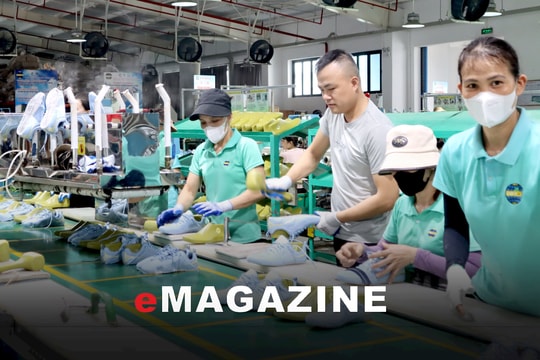After the FDI earthquake is a lingering worry
The State has many special incentives for FDI enterprises but is rigid and strict with its own family members - delegate Pham Trong Nhan spent 7 minutes speaking to analyze the role of foreign investment capital.
» Colonel Nguyen Huu Cau: What level is the intermediate level?
 |
| Delegate Pham Trong Nhan, Binh Duong delegation. Photo Quochoi.vn |
Contributing his opinion at the National Assembly's socio-economic discussion session on the morning of October 31, delegate Pham Trong Nhan (Binh Duong) admitted that foreign-invested enterprises (FDI) have made a great contribution to Vietnam's economic growth, but that comes with a series of concerns.
"We must calm down and think before it's too late," delegate Nhan warned.
In 2017, the 25 billion USD of foreign investment capital attracted, along with FDI projects increasing production scale, created an "earthquake". FDI helps the Vietnamese economy grow, but the efficiency it brings to the internal economy and people's lives is not worth much.
"The fluctuation of national GDP growth depending on a few FDI enterprises is very worrying," said Mr. Nhan.
Binh Duong delegate pointed out: It must be recognized that FDI adds important resources to the national development process. In 2016, FDI contributed 20% to GDP and created about 2 million jobs, accounting for 25% of total social investment capital, more than 70% of total export turnover...
Statistics for the period 2007-2015 show that up to 50% of FDI enterprises reported losses. However, paradoxically, the more losses they reported, the more FDI enterprises expanded production. Furthermore, statistics of the 1,000 enterprises paying the most taxes in 2015 showed that FDI enterprises contributed very little.
According to Oxfam, Vietnam loses about 170 billion USD each year due to transfer pricing. FDI contributes 70% of total export turnover but has been transferred abroad. Therefore, even if 20% income tax is collected on that figure, it is not much, the remaining 80% will of course be transferred back to the home country by FDI enterprises.
"Vietnam's economy is falling into the middle-income trap and will remain stuck for a long time," warned delegate Pham Trong Nhan.
One of the purposes of attracting investment is to receive technology transfer, but according to statistics, 80% of FDI enterprises use technology at the world average level, 14% use low and outdated technology, and only 5-6% use high technology.
In the global rankings of technology transfer, Vietnam has fallen in rank, much lower than Thailand, Malaysia, Indonesia and Cambodia.
"While FDI enterprises receive many incentives, domestic enterprises are treated very harshly. The story of Viettel being disillusioned when the Ministry of Finance flatly rejected its request for tax incentives like Samsung Vietnam, or the 500 billion investment to develop technology of Minh Long ceramics not being supported just because of a lack of some administrative procedures... are examples," said Mr. Pham Trong Nhan.
Tax loss, receiving outdated technology, resource depletion, cheap labor, unfair investment incentives and finally environmental pollution are the problems that arise with FDI, which Mr. Nhan emphasized that it is time for us to consider carefully before it is too late.
According to tuoitre.vn
| RELATED NEWS |
|---|

.jpg)






